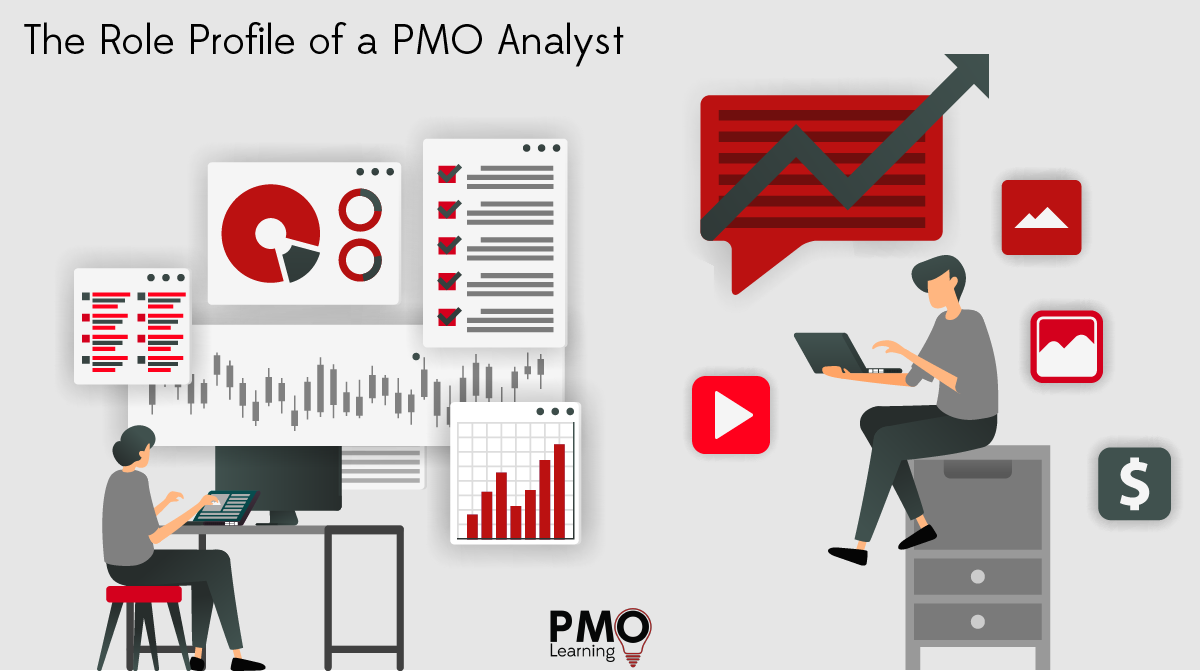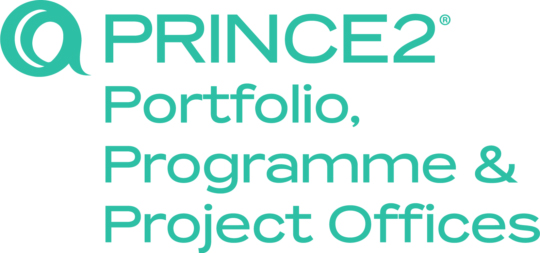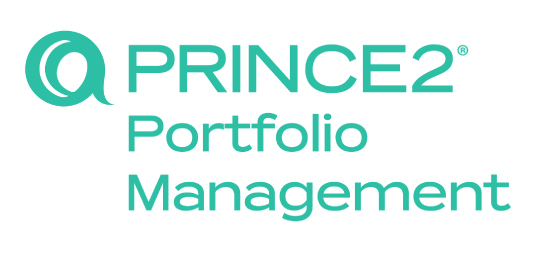We’re going to be taking a closer look at the role profile of the PMO Analyst, as outlined by the Essentials for PMO Analysts course and the PMO Competency Framework.
The PMO Competency Framework outlines four key PMO Roles – the PMO Administrator, the PMO Analyst, the PMO Manager and the PMO Director. Each role may have a slightly different variation in title, for example the PMO Administrator may be referred to as a Project Support Officer, or Project Co-ordinator.
There are five key areas to each role profile – purpose, key responsibilities, key knowledge, key skills, and key behaviours. Let’s take a look at each aspect in turn.
Purpose
The purpose of the PMO Analyst is to support the Project, Programme or Portfolio Manager and their team in delivery including co-ordination, planning, control, reporting, analysis, and their insights, as well as supporting the PMO Manager in the delivery of PMO initiatives.
Key Responsibilities
The support aspect of the role can be provided in a variety of different ways – from maintaining schedules and plans, financial monitoring, supporting wider PMO decisions, maintaining risks, actions and issues, dependency and resource management as well as documentation and communication.
Co-ordination is also a key element of the role – in order to produce reports, PMO Analysts must collate, analyse, evaluate and manipulate data, records, maintain libraries, registers and PMO and wider organisational systems. The role of the Analyst has further responsibilities than that of the PMO Administrator, for example they may undertake the role of service manager for one or more PMO services, as well as support senior management in championing and embedding P3M practices across the organisation.
Key Knowledge
The key knowledge required to perform the role of the PMO Analyst often comes directly from project related experience. This may include:
- Applications and tools of the organisation (eg office systems, CRM/ERP systems, document management systems, P3M tools and HR systems)
- Change and Delivery methods and associated controls from conception to benefits realisation (e.g. MoP, MSP, PRINCE2, Managing Benefits etc.) and local tailoring
- P3M and PMO theories and practice, including maturity models
- Professional standards and corporate norms (including including appropriate delivery and legal frameworks)
Key Skills
The key skills of the PMO Analyst can be categorised into six groupings, which we’ll look at in more detail below.
- Self
- Act assertively – the ability to express your feelings, thoughts, beliefs and opinions in a calm, respectful and positive way, without being aggressive.
- Active listening – the ability to listen with all your senses and fully concentrate on what is being said to gain a full understanding of and be able to remember the message, rather than just passively hearing the words of the speaker.
- Balance competing needs and interests – the ability to assess the needs and interests of multiple stakeholders and determine an optimal course of action.
- Exercise professional judgement – the ability to combine personal qualities with relevant context and P3M knowledge and experience to form sound opinions and make decisions in the absence of clear data.
- Reflect – the ability to examine a current or previous experience or situation to gain an understanding why something took place in order to make inferences, decisions or arrive at a solution or judgement.
- Thinking
- Learn – the ability to gain knowledge or skills by study, instruction, or experience.
- Communications
- Communicate and present – the ability to interchange thoughts, opinions, or information with others, by speech, writing, gestures, or other means.
- Influence others – the ability to have an impact on the action, behaviour, or opinions of others, without using force or coercion.
- Persuade – the ability to win the hearts and minds of others through the authentic presentation of data.
- Think creatively – the ability to look at problems or situations from new perspectives to identify innovate approaches to addressing them.
- Analytical
- Analysis – the ability to examine something in detail and be able to interpret and explain it
- Critical analysis – the ability to provide, justify and debate your personal perspective of a situation following objective analysis.
- Forecast – the ability to make a sound judgement of what is likely to happen in the future based on available data.
- Relationships
- Customer service – the ability to provide effective service to a customer, flexing one’s approach to the personality of the customer.
- Empathise – the ability to put yourself in somebody else’s shoes and understand and share their feelings.
- Engage – the ability to make a connection with another person for the purpose of communication or collaboration.
- Problem Solving
- Data assimilation – the ability to merge and synthesize data.
- Evaluate – the ability to assess the amount, value, quality, or importance of something.
- Monitor – the ability to observe and check progress or quality over time in a structured way, without impacting the operation or condition.
- Negotiate – the ability to reach agreement of an issue through strategic discussion that is agreeable to all parties.
- Reviewing – the ability to formally assess something with the intention of making changes if necessary.
- Solve problems – the ability to define, determine and implement solutions to difficult or complex issues.
- Collaboration
- Collaborate – the ability to work willingly and effectively with others to achieve a desired outcome.
- Demonstrate – the ability to describe, explain or illustrate to transfer explicit and tacit knowledge.
- Facilitate – the ability to help a group of people work together better in a meeting or workshop context, to set, understand and plan how to achieve common objectives whilst remaining neutral.
Key Behaviours
The Essentials for PMO Analysts course and the PMO Competency Framework outline 16 key behaviours for the role of the PMO Analyst, and we’ve listed several below:
- Be tenacious and act assertively as appropriate
- Be proactive and use initiative to achieve a successful outcome for all those involved in a timely manner
- Be open to challenge and debate, avoid being wedded to a single solution
- Be a team player, a role model for the core values and behaviours of the organisation
- Remain objective, reserving judgement until all the information has been assimilated or where limited information is available, use professional judgement to make timely decisions
- Take ownership of tasks and complete promptly, keeping customer up to date of progress and task completion
Where can I find out more?
If you’re looking to find out more about the PMO Analyst role, or any of the other PMO roles, the PMO Competency Framework provides the purpose, key responsibilities, key knowledge, key skills, and key behaviours of each role, as well as allowing readers to establish your competency is by completing a self-assessment using the PMO Competency Framework – find out how to use the framework to develop here!
Alternatively, why not join us on the Essentials for PMO Analysts certification course? This five day course helps delegates to gain the essential knowledge and understanding to undertake the role of a PMO Analyst, demonstrate a greater understanding of projects, programmes, portfolios and PMOs, understand and articulate the core roles and responsibilities of a PMO Analyst role, learn about the essential competences, knowledge, skills and behaviours required to perform the role of a PMO Analyst successfully, explore the PMO services offered and how they are delivered by PMO Analysts and more!
Enjoying Our Blog?
Sign up and receive all our articles (we’ll send you an update once a week!) plus special offers and events:
This post contains affiliate ad links.






